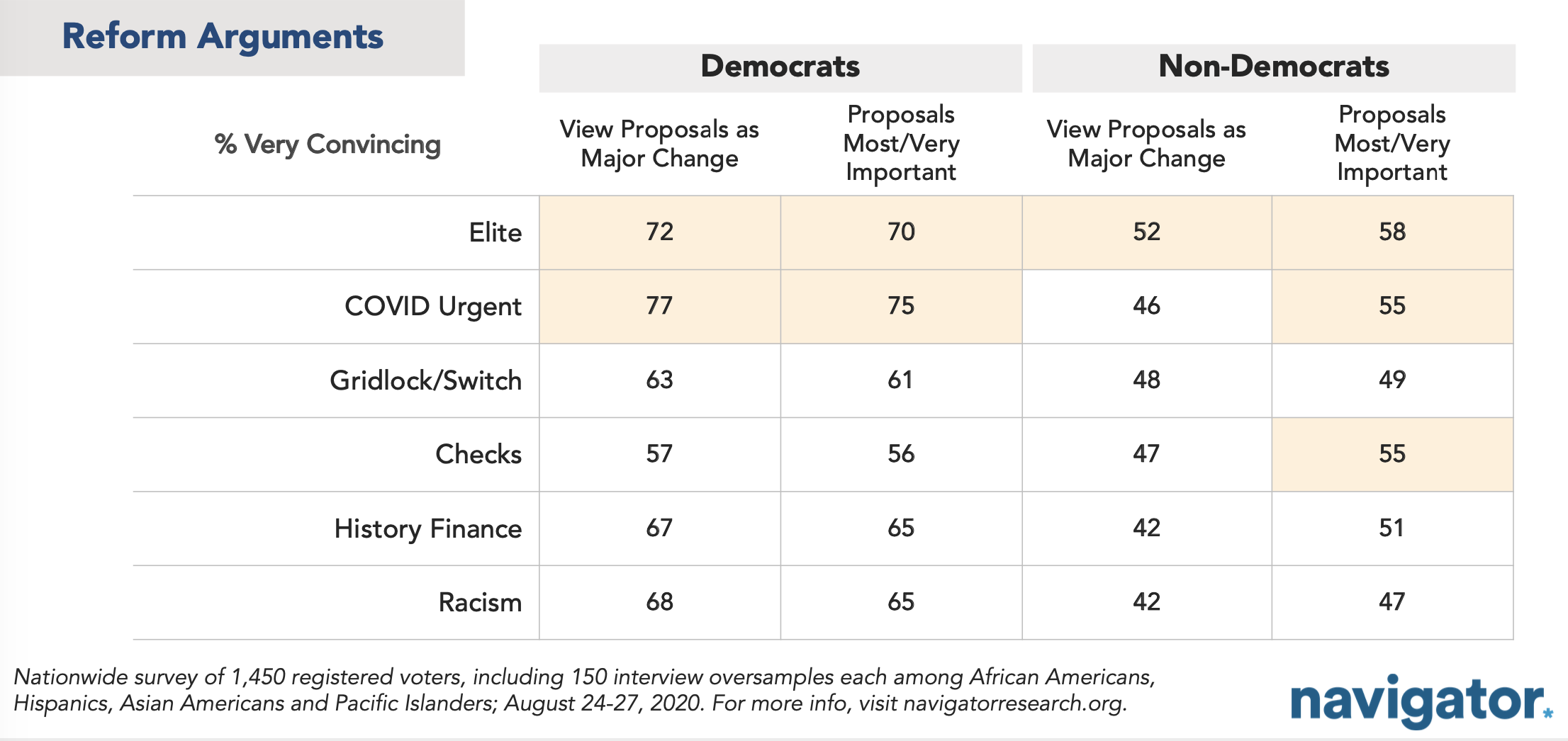Welcome to NAVIGATOR – a project designed to better understand the American public’s views on issues of the day and help advocates, elected officials, and other interested parties understand the language, imagery, and messaging needed to make and win key policy arguments.
This release features findings from two national online surveys of 1,450 registered voters, included 150-interview oversamples each among African Americans, Hispanics, Asian Americans and Pacific Islanders. Surveys conducted July 9-14, 2020 and August 24-27, 2020.
Key takeaways
- Most Americans desire “major change,” and believe various reforms such as elimination of the filibuster, voting rights reforms, and even some SCOTUS reform would have a positive impact on government.
- Despite decades of weakening trust, many Americans remain optimistic about the future. Democracy reform advocates can break through by combining optimism and historical context to discuss the need for reform.
- The specifics matter less than the bigger picture. Navigating thin levels of awareness and understanding requires using accessible language such as framing the filibuster as a “loophole.”
- Messaging can be multifaceted. Democrats respond to COVID urgency, and Republicans respond to messages around gridlock and checks and balances. Many voters respond to messaging around elitism, and Black voters respond to reform’s historical context.
“Major” Change Seems Necessary, Even To Republicans
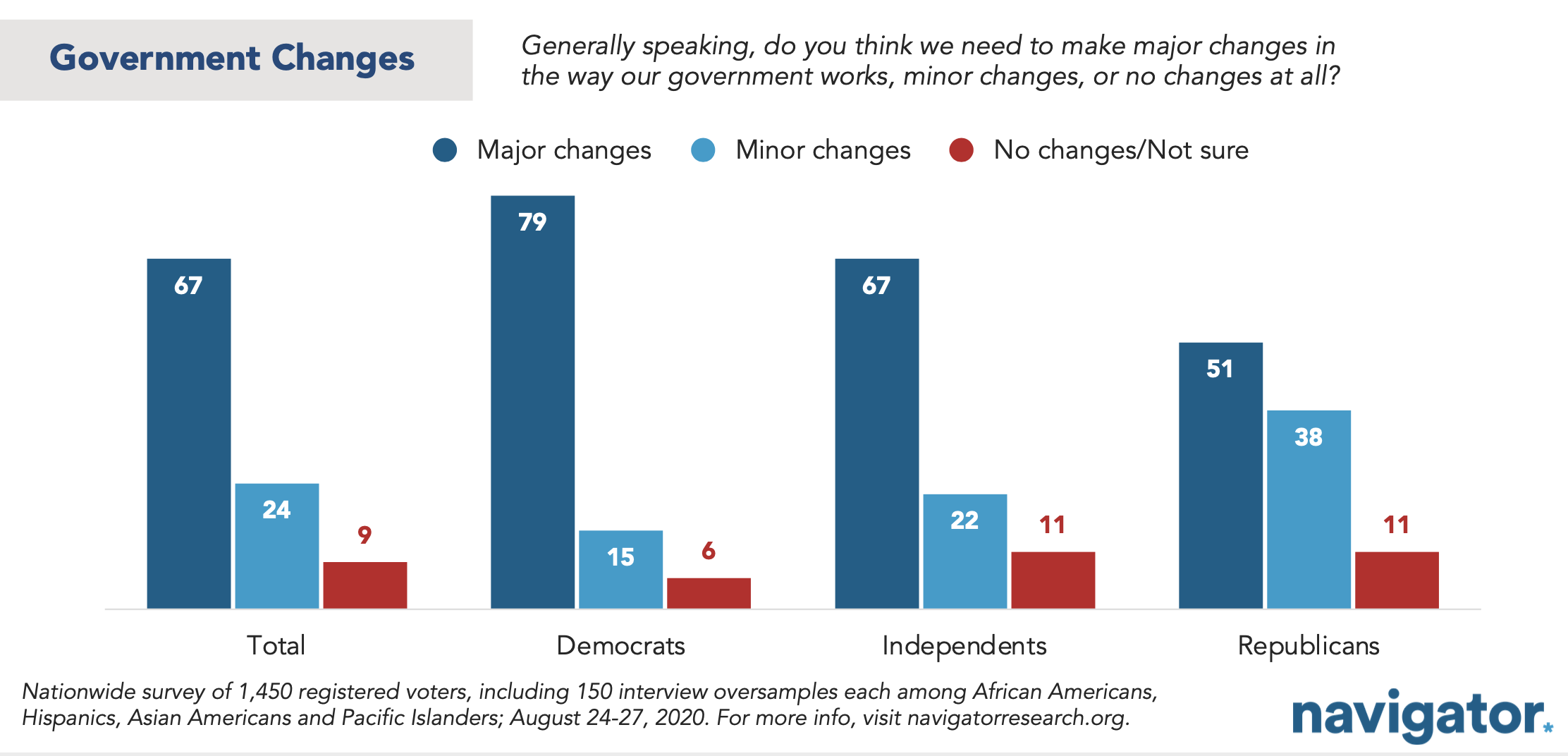
Americans – Even Republicans – Perceive Filibuster, Campaign Finance, Voting, Redistricting, And SCOTUS Reforms As Potentially Beneficial
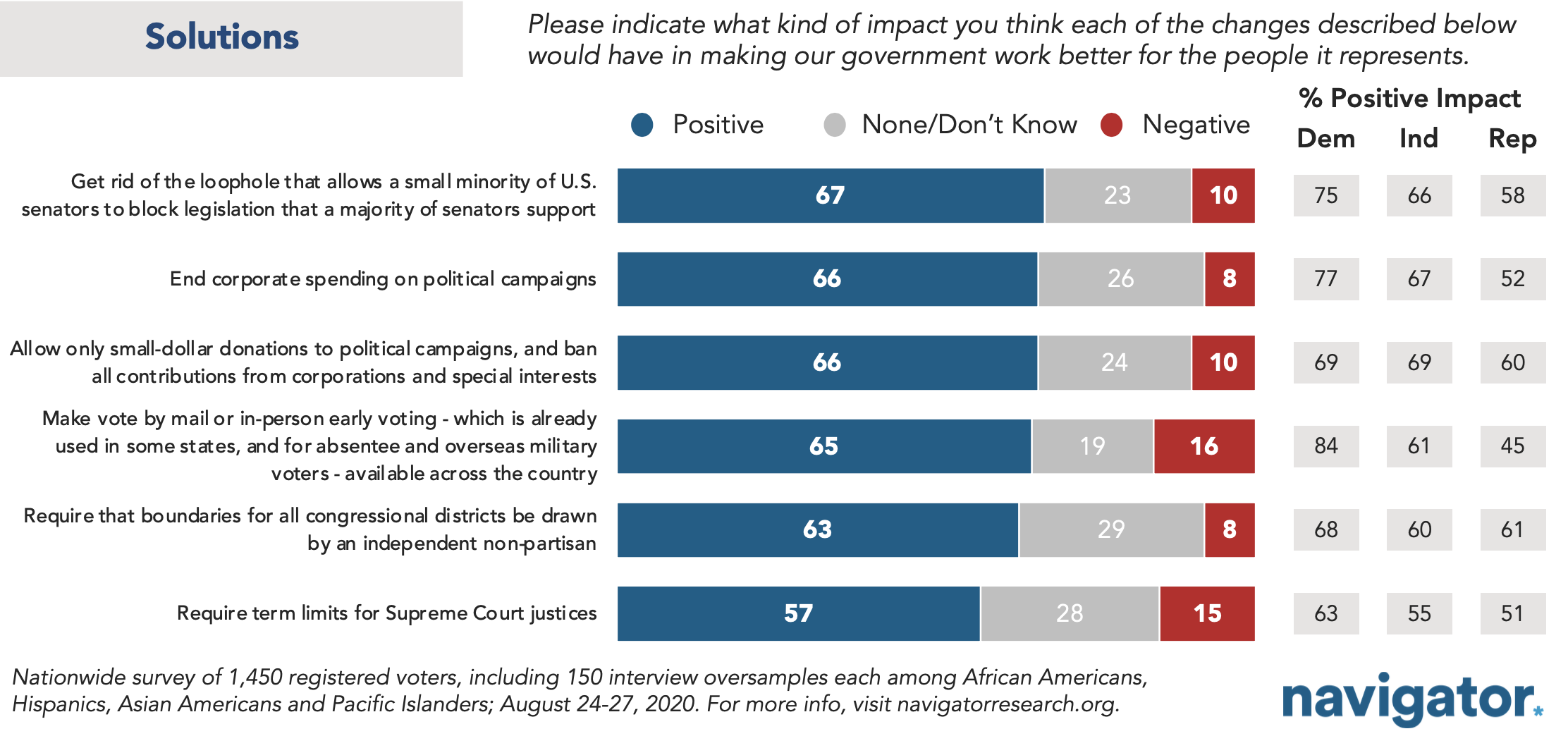
Electoral Reforms Are Viewed as Potentially Positive Among Non-Republicans; Even Views on Court Expansion More Positive Than Negative
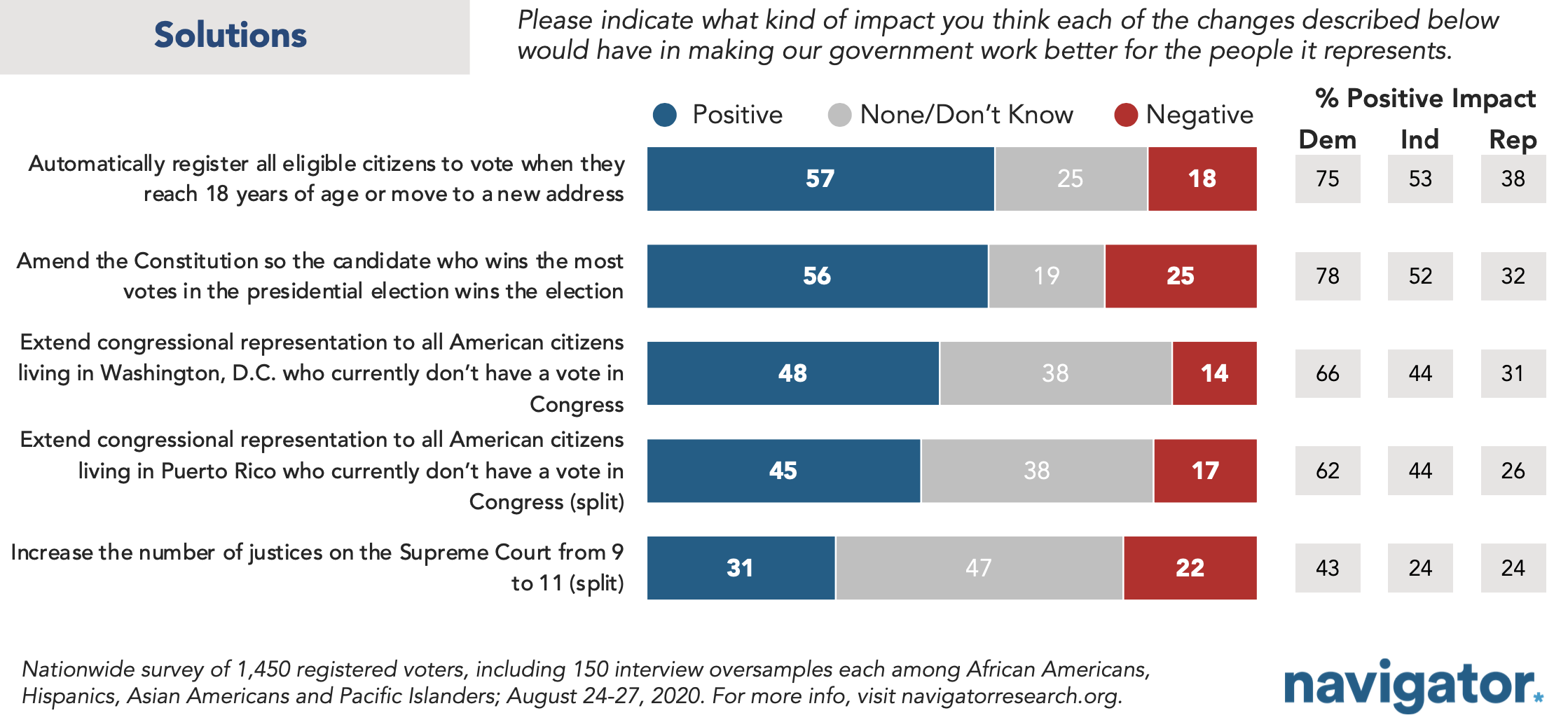
Taken Together, These Proposals Represent Major Changes To Half The Electorate, More So With Those Who Initially Want Major Change
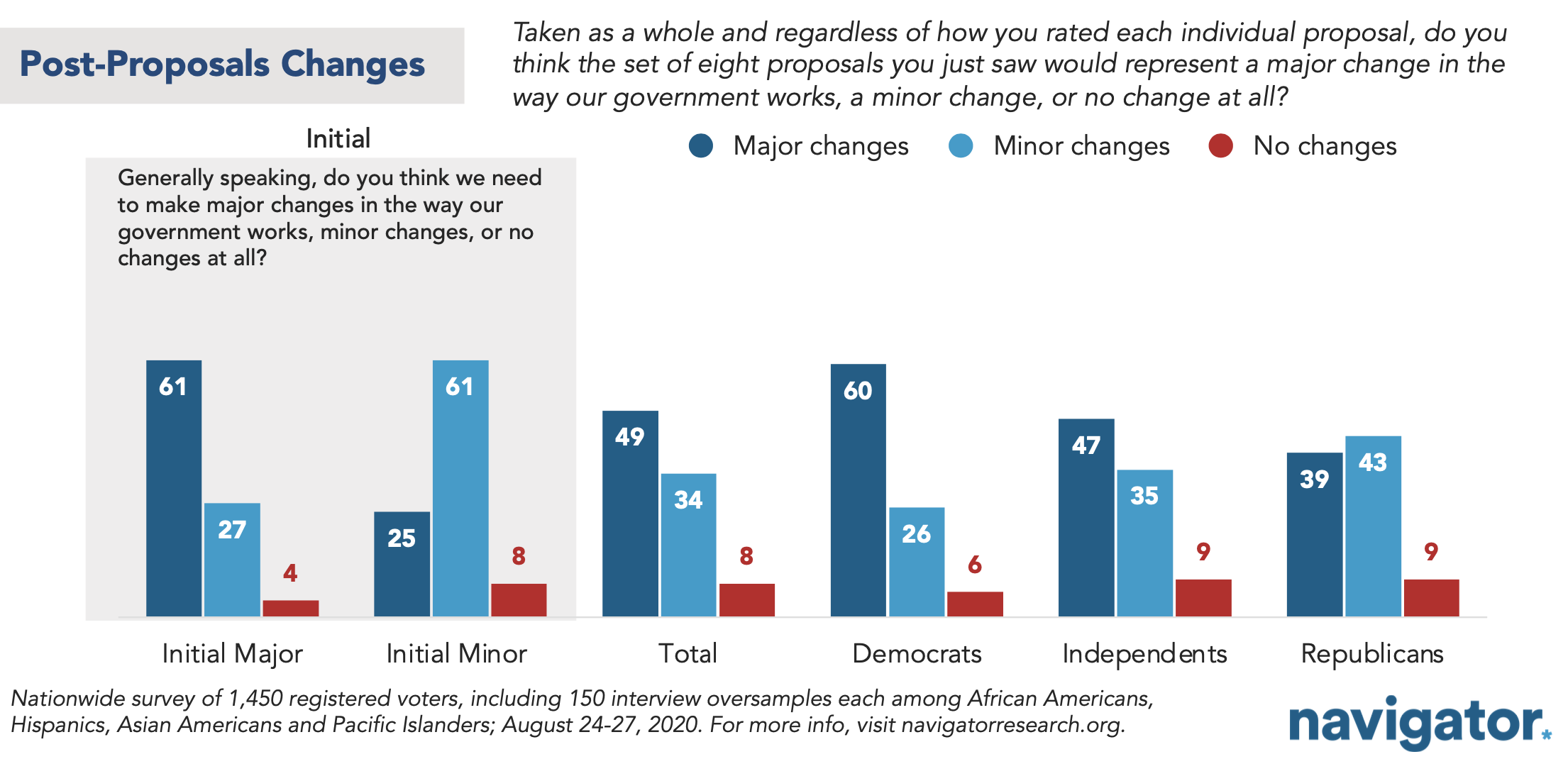
The “Filibuster” And Other Reforms Are Often Met With Confusion
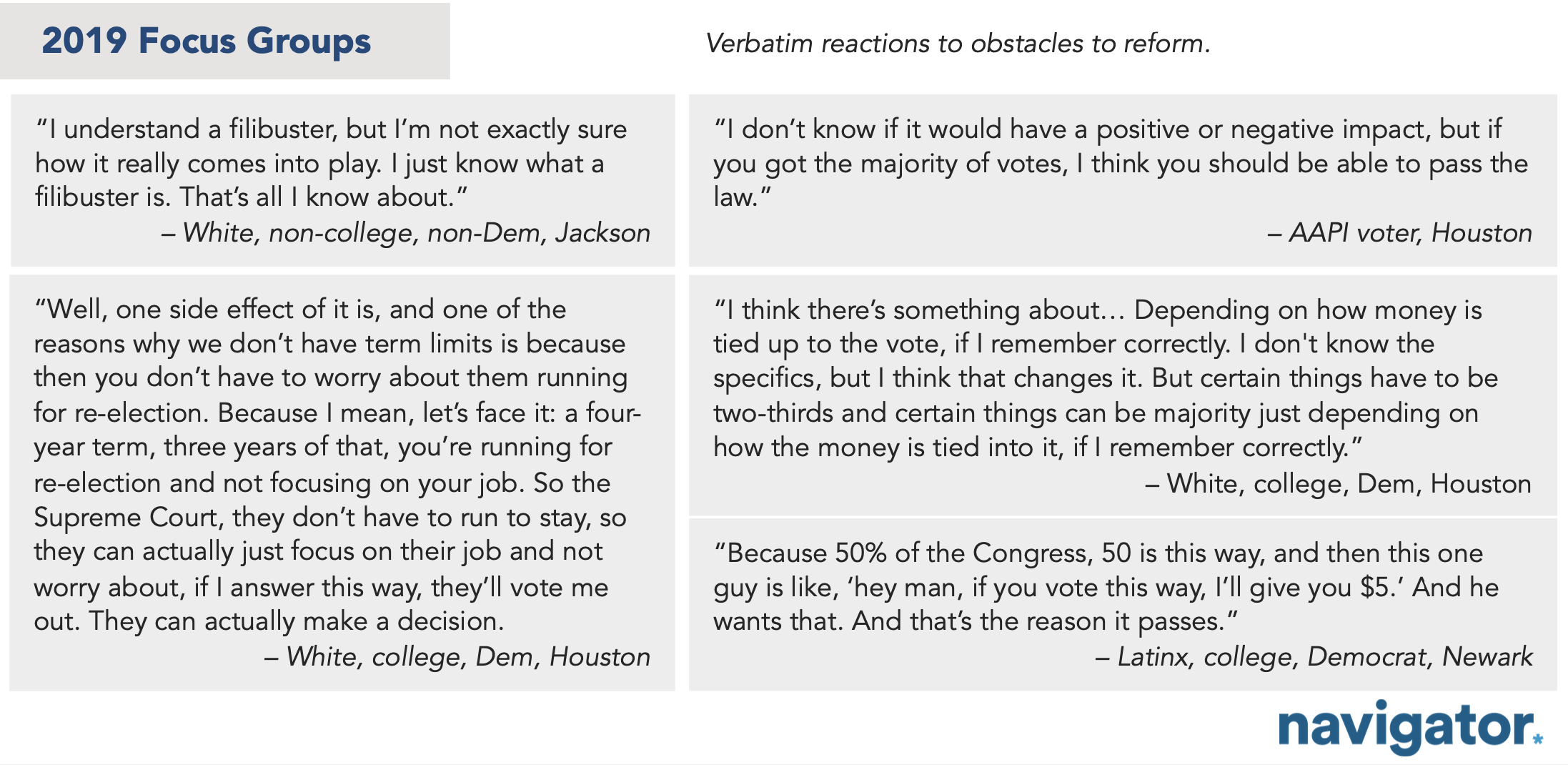
Framing The Filibuster As A “Loophole” Helps More Voters to Connect the Dots on Reforms
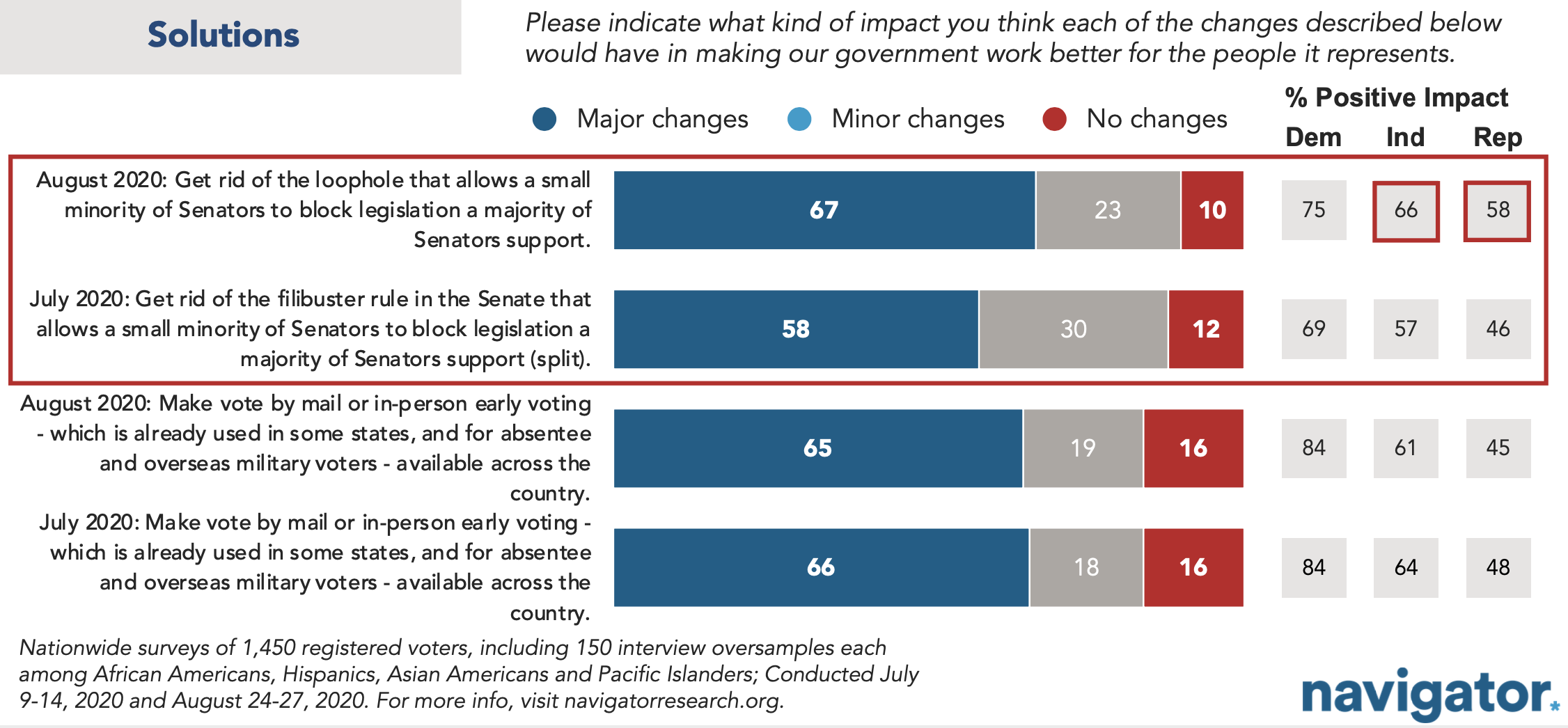
On Filibuster, Mitch McConnell Could Be A Proofpoint Of Both Bad Actor & Structural Obstacle
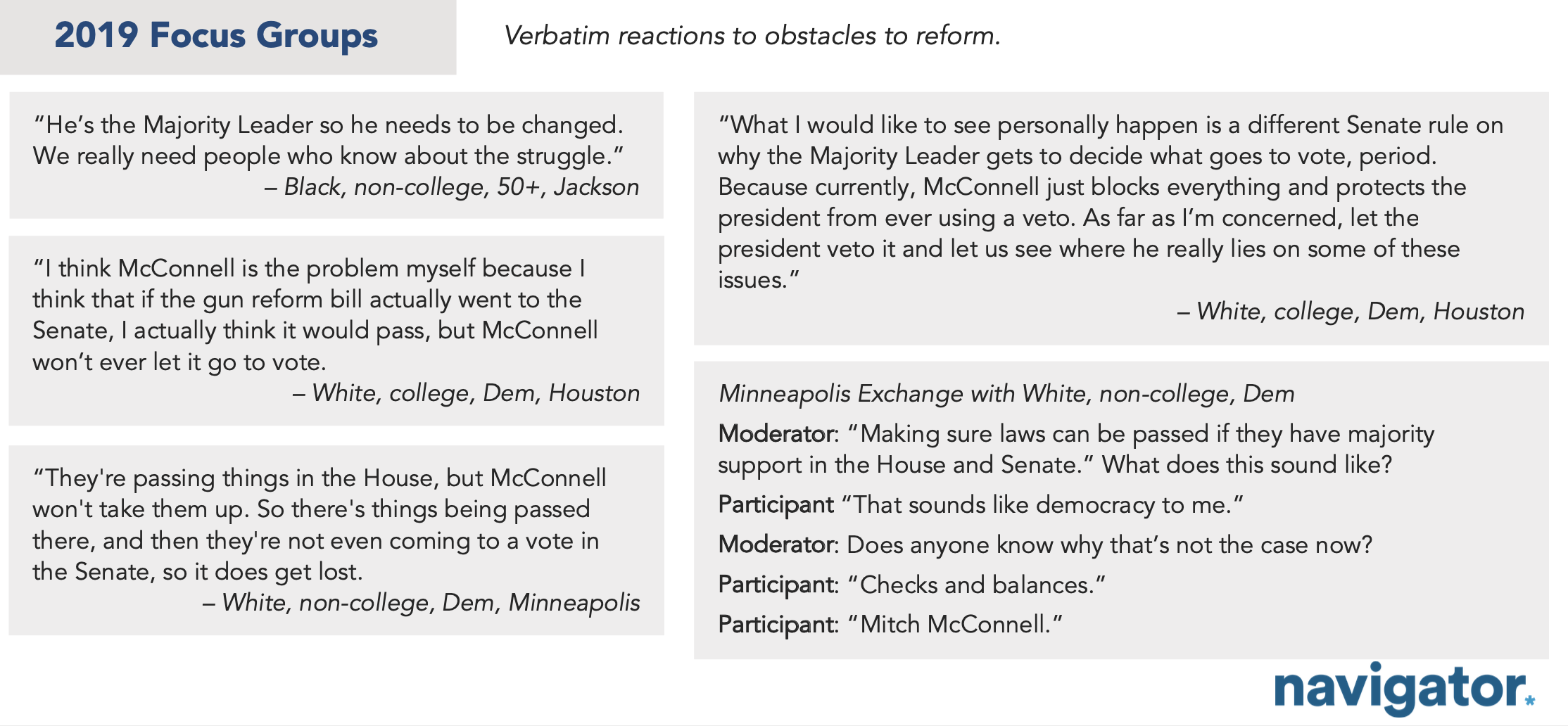
Most Reject the False Choice Between Changing Our Leaders And Making Structural Change To Our Broader System
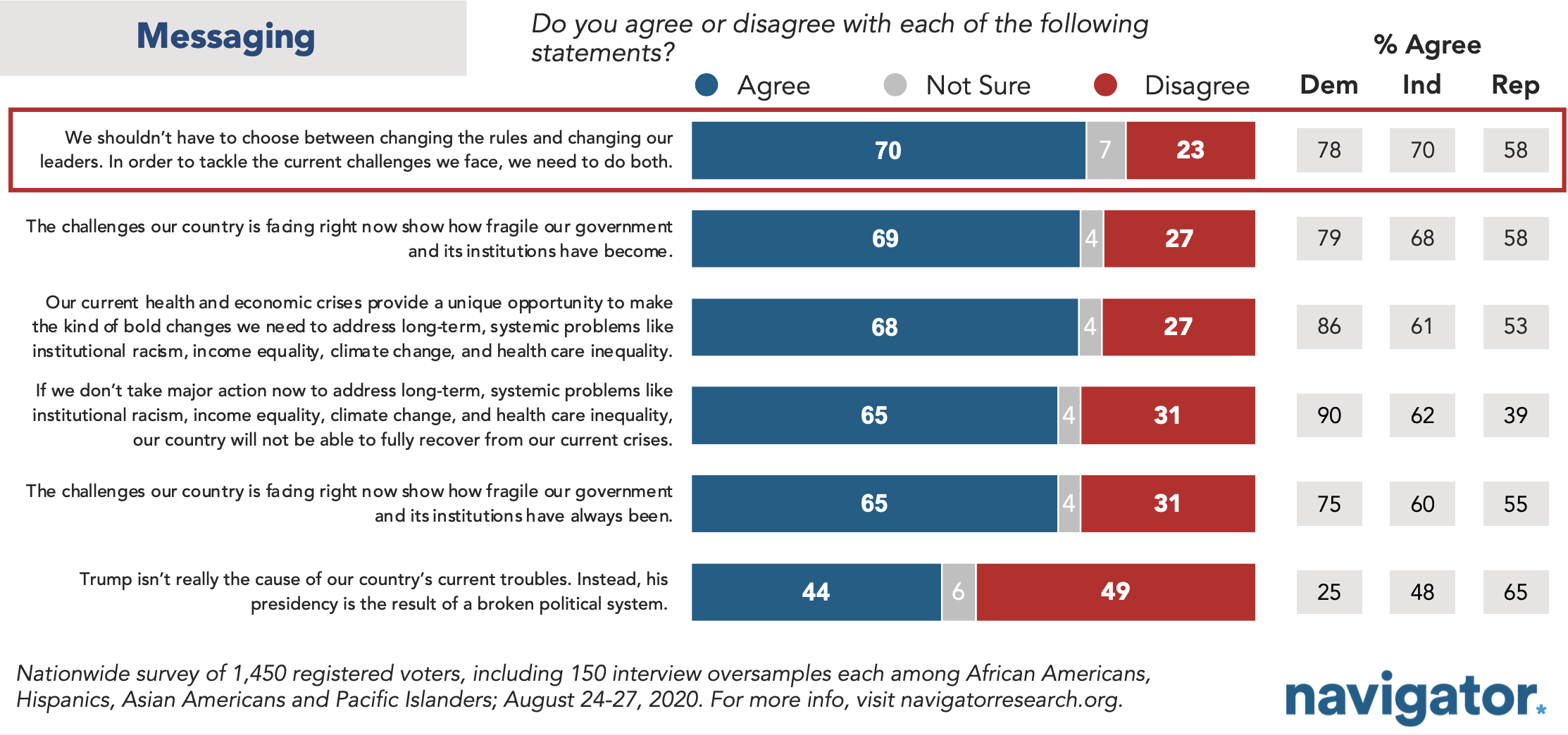
Framing the Debate Around How Fragile Government Institutions “Have Become” Resonates More Broadly Than Saying “They’ve Always Been”
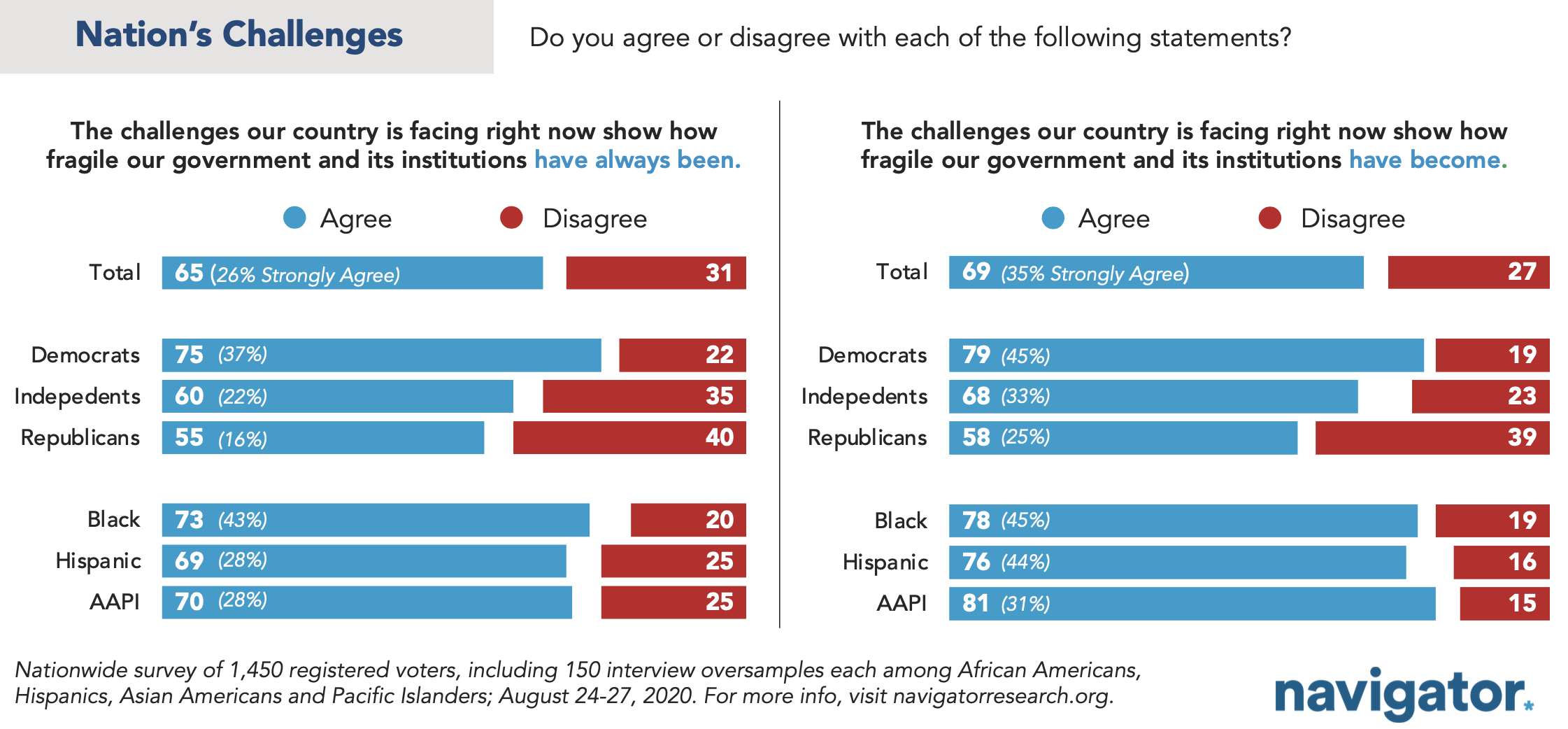
Reform Arguments In Full
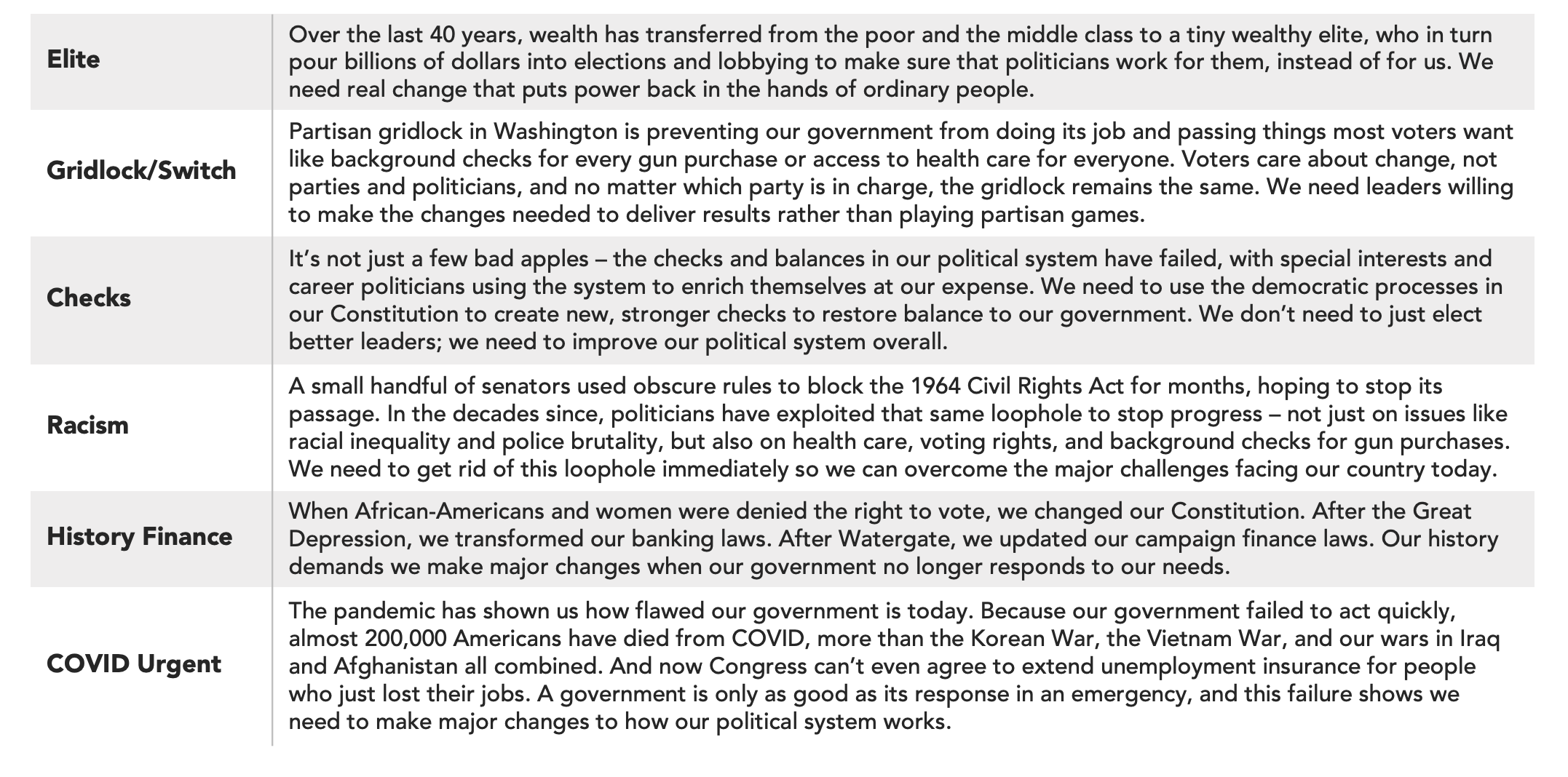
Overall, Inequality, COVID, And Gridlock Frames Work Best With Some GOP Pushback On COVID; Historical Context Works Well With Black Voters
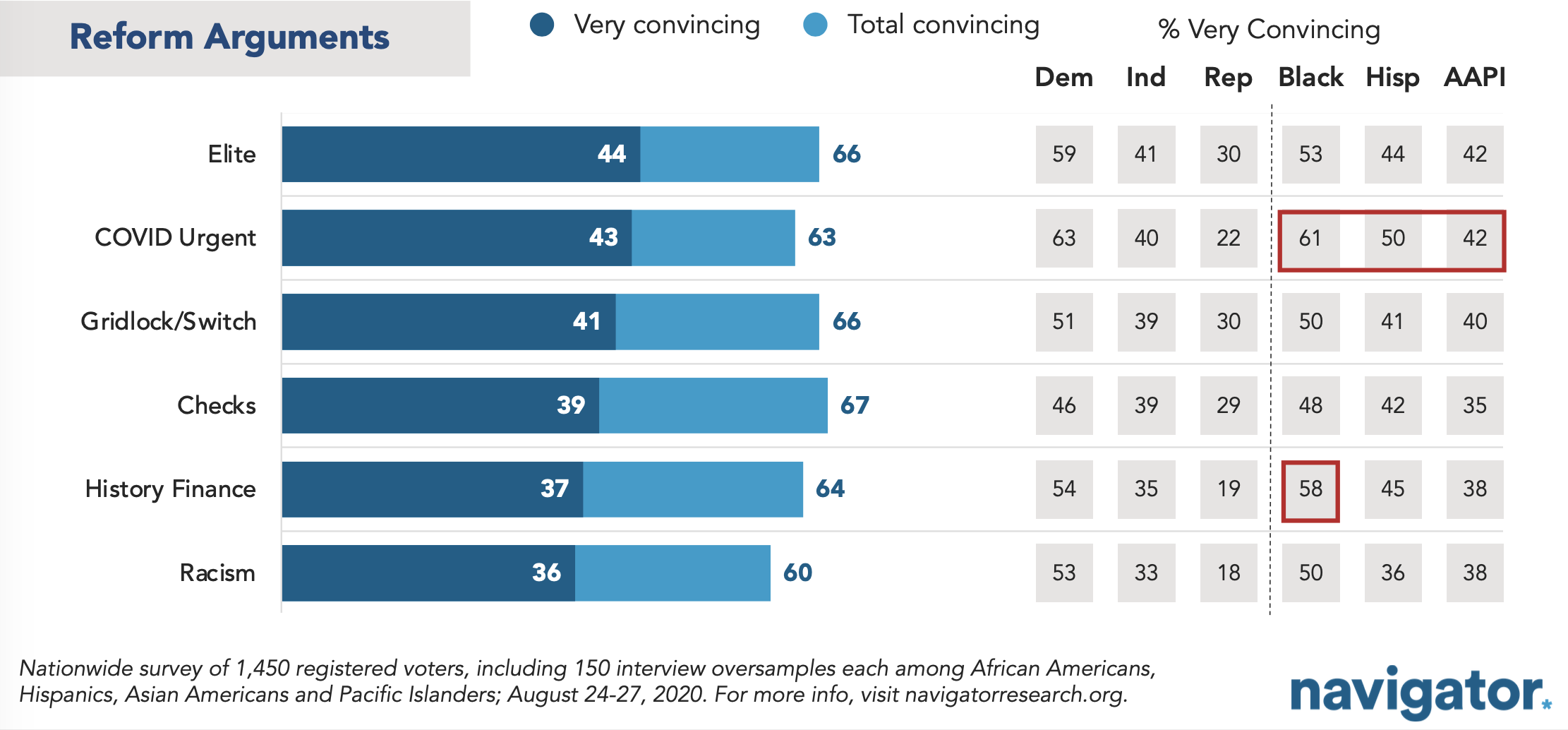
Text Highlighting Exercise Shows That Emphasizing Inequality, Politicians’ Greed, and the Need to Restore Balance Resonate Most

Checks & Balances Argument In Particular Resonates With Non-Democrats Who Believe These Reforms Are Important
